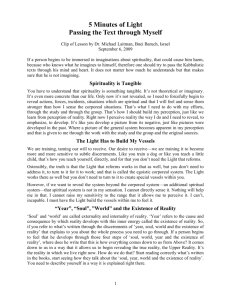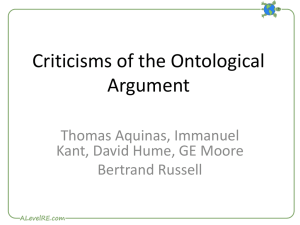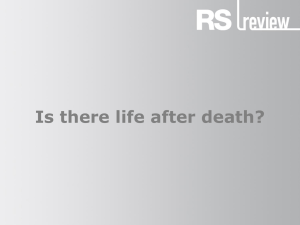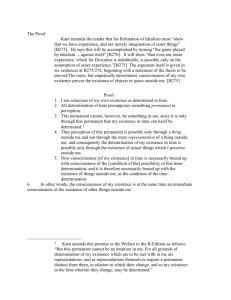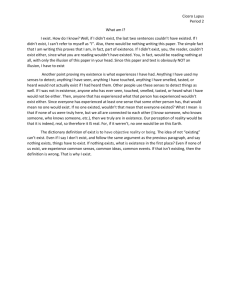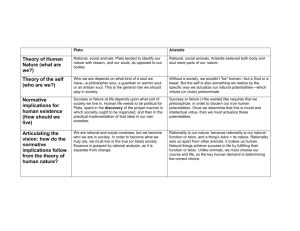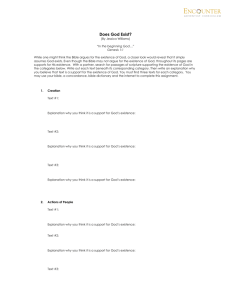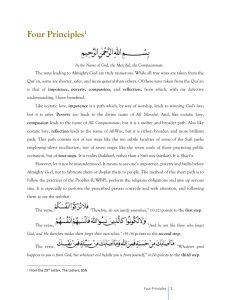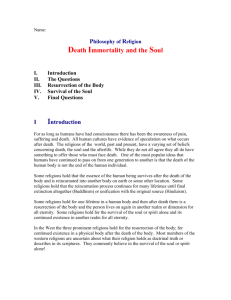clarification - YU Torah Online
advertisement
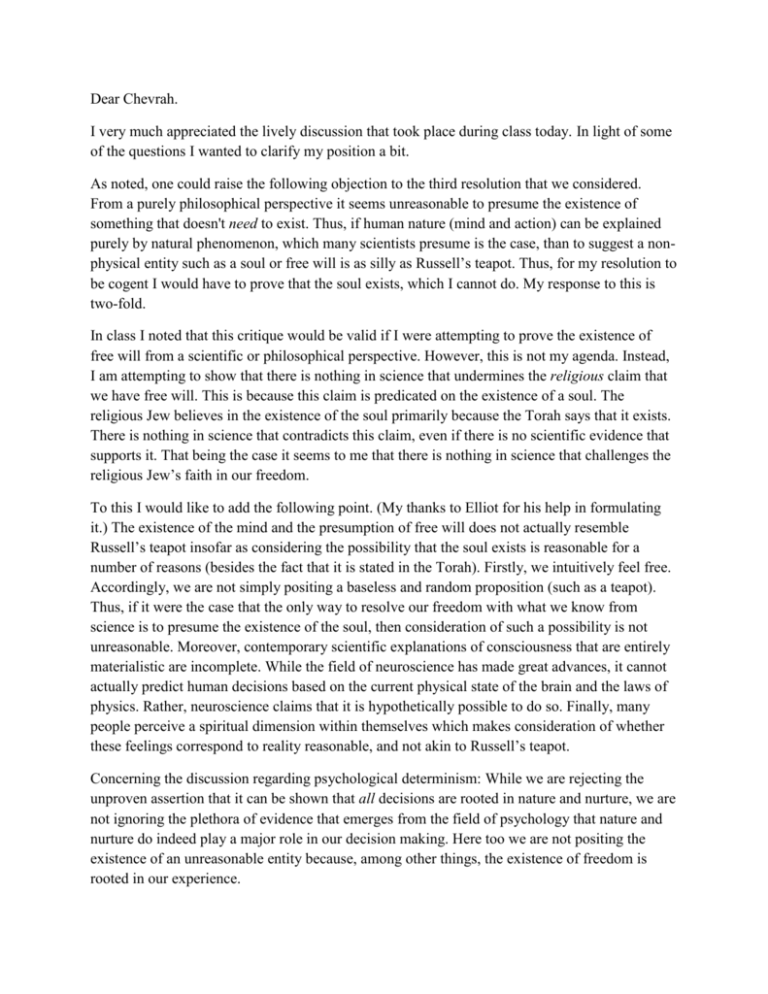
Dear Chevrah. I very much appreciated the lively discussion that took place during class today. In light of some of the questions I wanted to clarify my position a bit. As noted, one could raise the following objection to the third resolution that we considered. From a purely philosophical perspective it seems unreasonable to presume the existence of something that doesn't need to exist. Thus, if human nature (mind and action) can be explained purely by natural phenomenon, which many scientists presume is the case, than to suggest a nonphysical entity such as a soul or free will is as silly as Russell’s teapot. Thus, for my resolution to be cogent I would have to prove that the soul exists, which I cannot do. My response to this is two-fold. In class I noted that this critique would be valid if I were attempting to prove the existence of free will from a scientific or philosophical perspective. However, this is not my agenda. Instead, I am attempting to show that there is nothing in science that undermines the religious claim that we have free will. This is because this claim is predicated on the existence of a soul. The religious Jew believes in the existence of the soul primarily because the Torah says that it exists. There is nothing in science that contradicts this claim, even if there is no scientific evidence that supports it. That being the case it seems to me that there is nothing in science that challenges the religious Jew’s faith in our freedom. To this I would like to add the following point. (My thanks to Elliot for his help in formulating it.) The existence of the mind and the presumption of free will does not actually resemble Russell’s teapot insofar as considering the possibility that the soul exists is reasonable for a number of reasons (besides the fact that it is stated in the Torah). Firstly, we intuitively feel free. Accordingly, we are not simply positing a baseless and random proposition (such as a teapot). Thus, if it were the case that the only way to resolve our freedom with what we know from science is to presume the existence of the soul, then consideration of such a possibility is not unreasonable. Moreover, contemporary scientific explanations of consciousness that are entirely materialistic are incomplete. While the field of neuroscience has made great advances, it cannot actually predict human decisions based on the current physical state of the brain and the laws of physics. Rather, neuroscience claims that it is hypothetically possible to do so. Finally, many people perceive a spiritual dimension within themselves which makes consideration of whether these feelings correspond to reality reasonable, and not akin to Russell’s teapot. Concerning the discussion regarding psychological determinism: While we are rejecting the unproven assertion that it can be shown that all decisions are rooted in nature and nurture, we are not ignoring the plethora of evidence that emerges from the field of psychology that nature and nurture do indeed play a major role in our decision making. Here too we are not positing the existence of an unreasonable entity because, among other things, the existence of freedom is rooted in our experience. Thank you again for all of your excellent comments made during shiur and have a wonderful Shabbos. Netanel
